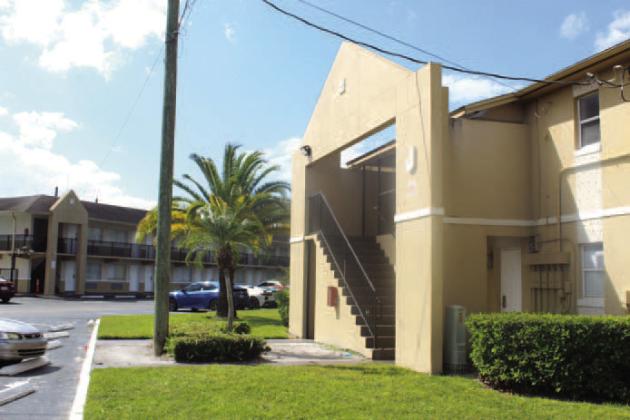The City of Kissimmee presented to its Commission and the public an update on The Haven on Vine, a housing project that’s slated to bring over 120 units of affordable housing.
The city used local and federal Rescue Plan dollars, along with funding partners like Osceola County, to secure the former Super 8 Motel at West Vine Street and Hollywood Avenue for $12 million. The next step is to renovate those into stable, affordable bridge housing, combine them with human services support services in a proposed public-private partnership, and open a first phase in March 2024.
It’s part of a city strategy that Deputy City Manager Desiree Matthews said prioritizes new housing as a solution for homelessness.
“It’s doable, and attainable,” she said. “This property presented a ton of potential for addressing this issue,” Matthews said.
The city is doing it in the face of rising pressure on living space. The city noted a 67% percent increase in documented unsheltered homeless individuals, especially among unaccompanied youth — runaways or those aging out of the foster care system — and seniors who have few affordable options. Numbers are rising, and the county lacks a dedicated funding source to address the issue.
Because federal funding was a piece and the property was bought at market level, any current tenants who would qualify under the move-in guidelines will get to continue living there, and those who don’t will receive relocation assistance.
Where fair-market rent for a one-bedroom unit in the Orlando-Kissimmee-Sanford market is projected to be over $1,600 in 2024, someone who earns 50% of the local median income ($85,700 for a family of 4, or about $14.78 per hour for a single person) would be $768, or $1,230 if they make 80% of the median. That figure covers utilities. Residents currently there are paying $900 and $1,700 for one and two-bedroom units.
The homeless, families with minor children, veterans, seniors, those with disabilities and domestic violence program participants will be prioritized. To qualify, applicants must have resided in Osceola County for one year, but those with nonviolent criminal histories or an eviction — factors that eliminate many from even applying for a traditional apartment or dwelling – will not disqualify prospective tenants.
The goal is to provide access to services, increase their income and move on to market-rate housing.
“The cycle of subsidy and poverty ends, and that’s the goal,” Matthews said.
Renovations to part of the former hotel, to offer kitchenettes and new bathrooms with dedicated living spaces in each unit for 43 new units, are hoped to be ready by Mach 2024. It would also be eligible to be used as a city “cold night” shelter on the coldest winter nights.
Phase II, 40 more units, may take an additional year, as much of that part of the property requires gutting. The city as submitted a $1.8 million funding request to U.S. Rep. Darren Soto to pay for that.
This part of the project would house 24/7 “Rapid Rehousing” resources on site.
The City Commission agreed for the city to continue to manage the project.
“I commend you for the work you’ve done on this project,” City Commissioner Angela Eady said to Matthews at the meeting. “No stone has been unturned.”




